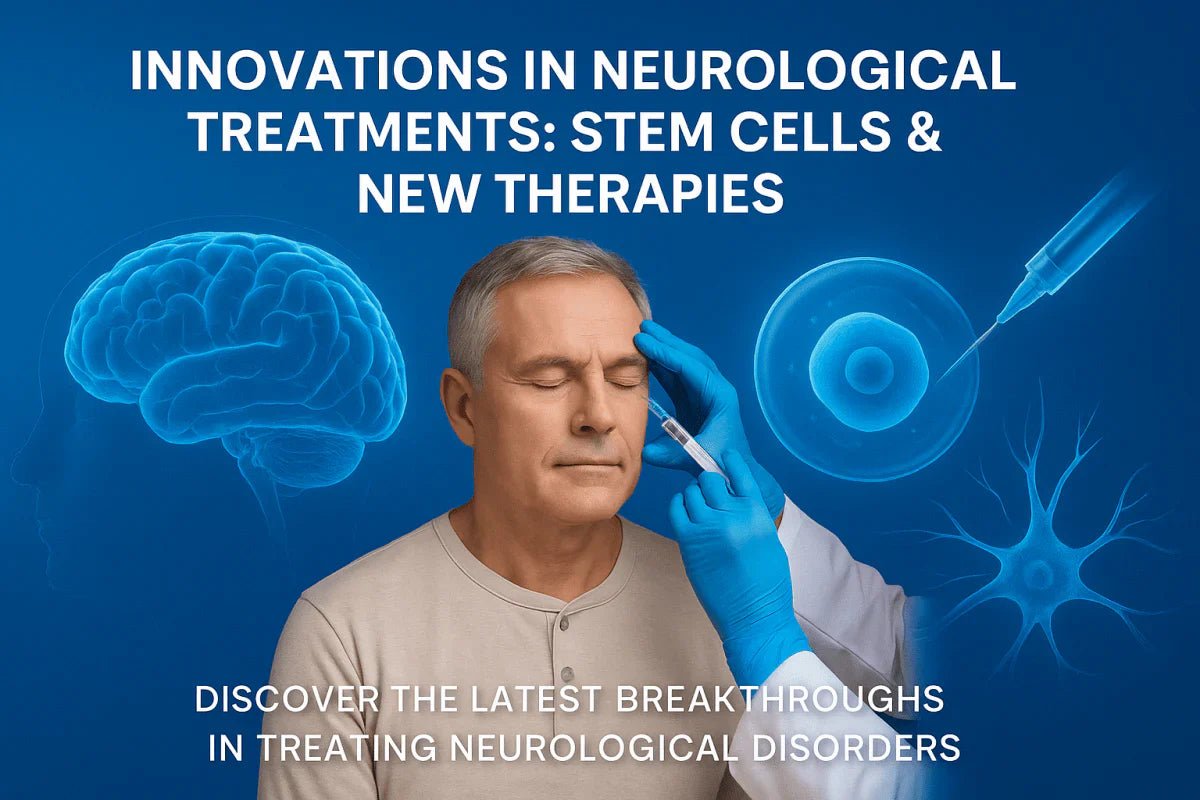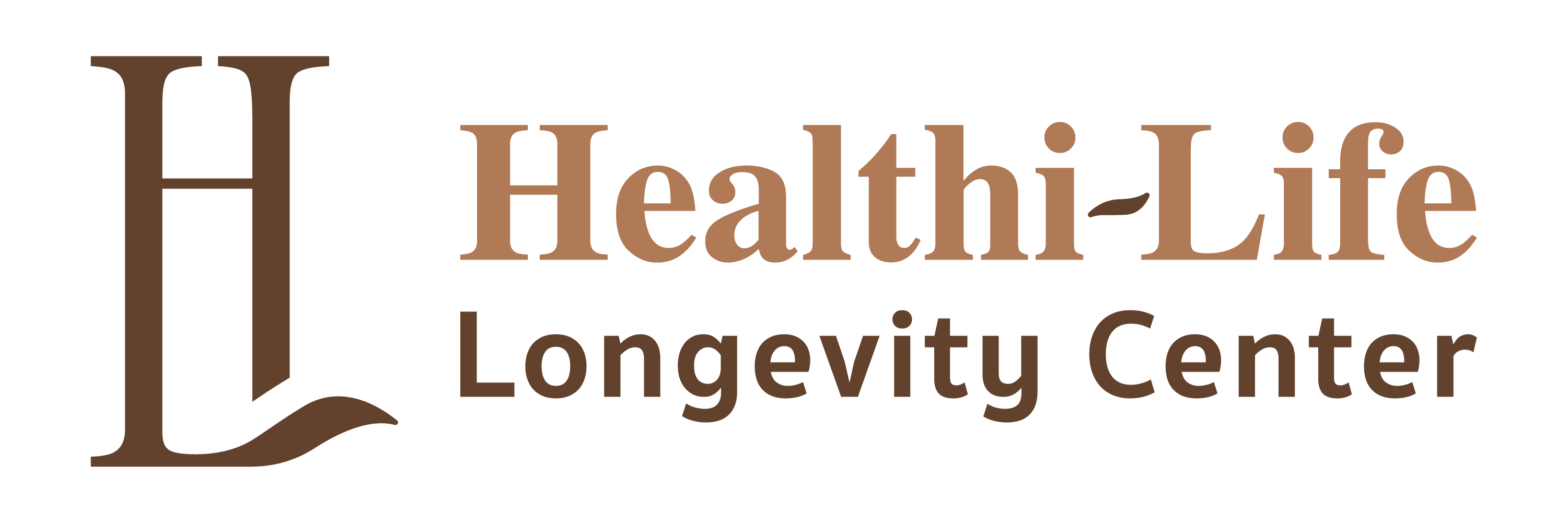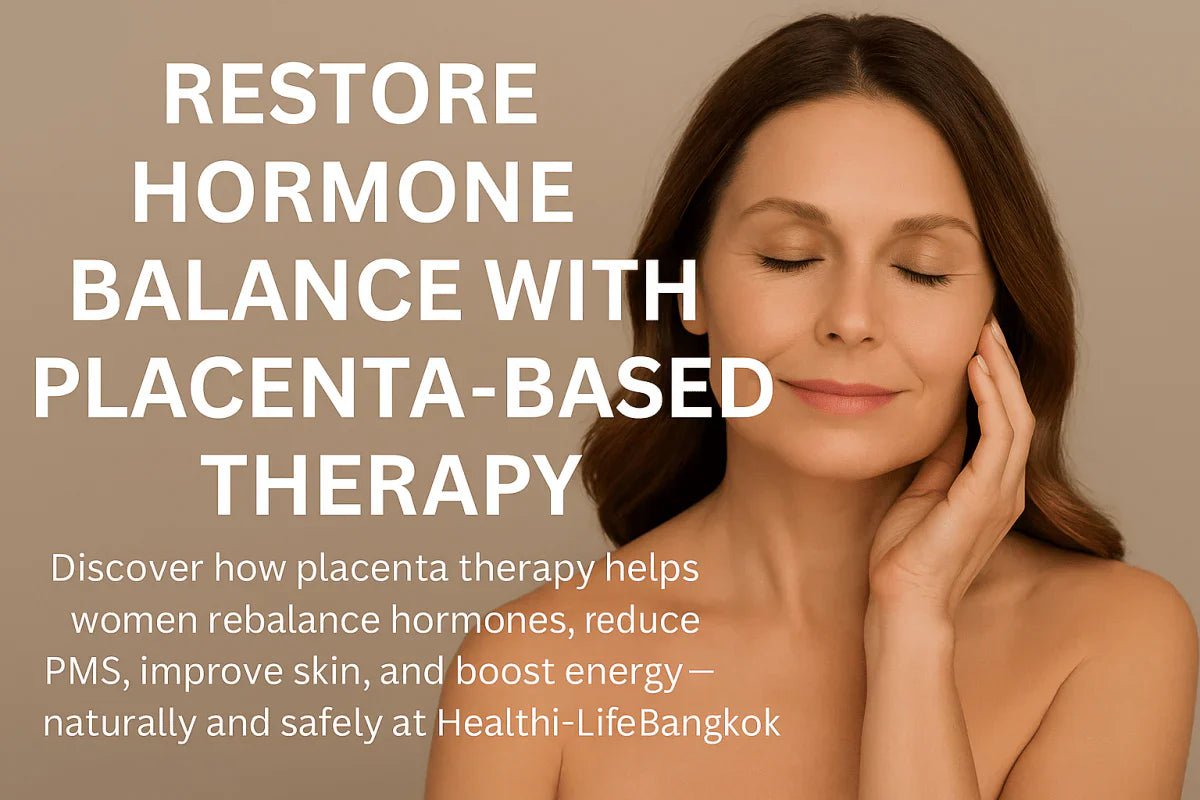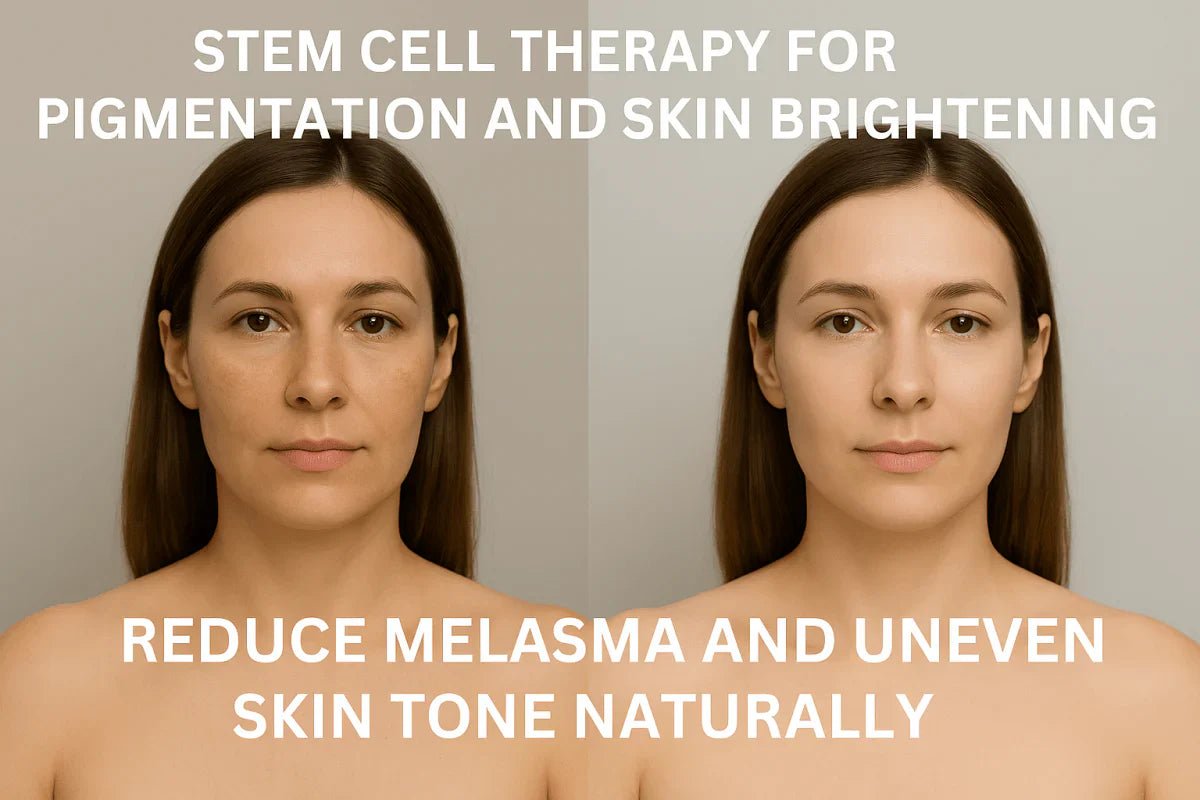
Innovations in Treating Neurological Disorders: A Look at Emerging Therapies
Neurological disorders affect millions of people worldwide. These conditions, ranging from Alzheimer’s disease to Parkinson’s and stroke, often lead to progressive disability and loss of independence.
For decades, medical science focused on symptom management. Medications temporarily relieved some problems but did little to stop or reverse the underlying disease process. That model is now changing.
Thanks to advances in regenerative medicine, neuroscience, and personalized care, we are entering a new era of treatment options for neurological disorders—one that emphasizes healing, repair, and prevention at the cellular level.
In this article, we’ll explore the most promising innovations transforming how we approach brain and nervous system disorders, and why clinics like Healthi-Life Longevity Center in Bangkok are at the forefront of these regenerative breakthroughs.
The Complex Challenge of Neurological Disorders

The human nervous system is incredibly complex. The brain contains over 86 billion neurons, with trillions of connections. Damage to these structures—whether from trauma, aging, or disease—often leads to lasting impairment.
Common neurological disorders include:
- Alzheimer’s disease
- Parkinson’s disease
- Stroke
- Multiple sclerosis (MS)
- Amyotrophic lateral sclerosis (ALS)
- Traumatic brain injury (TBI)
Traditional treatments focus on controlling symptoms: medication to reduce tremors, manage seizures, or improve mood. While helpful, these approaches do not stop the progression of neurological disorders. New therapies are seeking to change that.
A New Paradigm: Regenerative and Restorative Medicine
Regenerative medicine aims to repair damaged tissues rather than merely controlling symptoms. Instead of masking the effects of neurological disorders, these emerging therapies focus on:
- Reducing chronic inflammation in the brain
- Repairing injured neurons and support cells
- Restoring blood flow and oxygen to brain tissue
- Modulating immune system overactivity
- Promoting neurogenesis (the growth of new neurons)
The goal is not just symptom relief—but actual healing.
Stem Cell Therapy: A Foundation for Repair
Stem cell therapy is one of the most exciting innovations in treating neurological conditions. They are unspecialized cells that can transform into many different cell types, including neurons and glial cells.
Mesenchymal Stem Cells (MSCs) are particularly promising due to their strong anti-inflammatory and immune-modulating effects.
How Stem Cells Help Neurological Disorders:
- Calm chronic inflammation in the brain (neuroinflammation)
- Promote regeneration of damaged nerve cells
- Stimulate formation of new blood vessels (angiogenesis)
- Protect existing neurons from further damage
- Modulate overactive immune responses seen in autoimmune brain disorders
Clinical studies are ongoing, but early results show promise for conditions like Parkinson’s, MS, and post-stroke recovery.
At Healthi-Life, patients receive fresh MSCs sourced ethically and prepared under strict international safety standards.
Exosome Therapy: Precision Cell-to-Cell Communication
Exosomes are tiny vesicles released by stem cells. They carry growth factors, proteins, and genetic information to influence nearby cells. In neurological applications, exosomes act as powerful messengers to:
- Reduce neuroinflammation
- Improve cellular signaling
- Enhance synaptic repair
- Support brain detoxification
Exosome therapy is especially helpful for patients who may not need full stem cell transplantation but want targeted cellular rejuvenation.
Exosomes cross the blood-brain barrier more easily than cells, making them a unique tool for treating conditions such as mild cognitive impairment, brain fog, and early neurodegeneration.
Peptide Therapy: Supporting Brain Regeneration
Peptides are short chains of amino acids that regulate many biological processes. Several peptides have shown neuroprotective and regenerative effects.
Popular peptides for brain health:
- Cerebrolysin: Supports nerve growth factor (NGF) activity and improves cognitive function
- BPC-157: Reduces brain inflammation and enhances blood flow
- Thymosin Beta-4: Supports cellular repair after injury
- Semax and Selank: Improve mood, memory, and mental clarity
Peptides often work synergistically with stem cells and exosomes, amplifying repair mechanisms while calming neuroinflammation.
At Healthi-Life, peptide protocols are tailored to each patient’s condition, lab results, and treatment goals.
Advanced IV Therapy for Neurological Disorders Recovery
Intravenous nutrient therapy provides immediate delivery of essential vitamins, minerals, and antioxidants directly into the bloodstream. For neurological patients, IVs support:
- Mitochondrial energy production
- Antioxidant defenses against oxidative stress
- Detoxification of neurotoxic chemicals
- Improved neurotransmitter balance
Common IV formulations include:
- NAD+ IV Therapy (supports mitochondrial energy and neuroprotection)
- Glutathione IV (reduces oxidative stress in the brain)
- Vitamin C, B-complex, Magnesium IVs (support overall nervous system health)
These infusions enhance the body's ability to heal and regenerate neurological tissues.
Hyperbaric Oxygen Therapy (HBOT)
HBOT involves breathing 100% oxygen inside a pressurized chamber. This therapy increases oxygen delivery to injured brain tissue, stimulates neuroplasticity, and reduces swelling.
HBOT is used as an adjunct in:
- Stroke rehabilitation
- Traumatic brain injury recovery
- Post-concussion syndromes
- Neurodegenerative diseases
Though not yet widely accessible, clinics offering integrated neuro-regeneration may incorporate HBOT alongside other regenerative therapies for enhanced outcomes.
The Role of Functional Diagnostics
Before beginning any regenerative protocol, it is essential to understand each patient's unique neurological profile.
At Healthi-Life, patients undergo comprehensive diagnostics, including:
- Advanced brain imaging (MRI, SPECT scans)
- Inflammatory markers (CRP, cytokines)
- Oxidative stress testing
- Neurotransmitter panels
- Gut–brain axis assessments
This data allows the medical team to create customized programs that address both root causes and symptom management.
The Gut–Brain–Immune Connection
Emerging research confirms that gut health directly affects brain function. Imbalanced gut microbiomes contribute to neuroinflammation and immune dysregulation.
Patients with neurological disorders often benefit from:
- Microbiome analysis
- Probiotic therapy
- Leaky gut repair protocols
- Nutritional counseling
Healing the gut may help reduce brain inflammation and support cognitive recovery.
Personalized Longevity Protocols for Brain Health
At Healthi-Life Longevity Center, brain regeneration programs are comprehensive. Treatment may combine:
- Stem Cell IV Therapy
- Exosome Infusions
- Peptide Injections
- IV Nutrients & NAD+ Support
- Lifestyle and Mind-Body Coaching
The goal is to create a long-term strategy for neuroprotection, not a quick fix.
Patients often report:
- Improved clarity and focus
- Reduced tremors or stiffness
- Better mood stability
- Renewed energy
- Slower disease progression
Frequently Asked Questions
1. Is regenerative therapy a cure for neurological diseases?
Not yet. But it offers the potential to slow progression, restore function, and improve quality of life.
2. Is stem cell therapy safe for the brain?
Yes—when performed with properly sourced MSCs in regulated clinics like Healthi-Life, risks are minimal.
3. How soon can patients expect results?
Some improvements (like energy and mood) may occur within weeks. Neuro-regeneration often unfolds gradually over 3 to 12 months.
Future Directions in Neurological Regeneration
The field is advancing rapidly. Within the next decade, we may see:
- Gene-edited stem cells for rare genetic brain disorders
- 3D bioprinted neural tissues for transplants
- AI-guided early detection of neurodegenerative changes
- Expanded use of non-invasive brain stimulation devices
As technologies evolve, personalized regenerative protocols will likely become part of mainstream neurological care.
The Healthi-Life Difference
At Healthi-Life Longevity Center in Bangkok, patients receive:
- Fresh, ethically sourced mesenchymal stem cells
- FDA-compliant regenerative materials
- Expert clinicians trained in functional neurology
- Integrated diagnostics for the gut-brain-immune axis
- A luxury healing environment with global standards
Our mission is simple: Restore function. Reverse decline. Rebuild confidence.
Every patient is unique, which is why every protocol is custom-designed.
Begin Your Neurological Healing Journey
If you or a loved one is facing the challenges of neurological decline, know that science offers new hope. Regenerative medicine empowers the brain’s natural healing ability at the cellular level.
Book your comprehensive neurological consultation today.
Let Healthi-Life guide you into a future where brain health is not just preserved—but enhanced.


